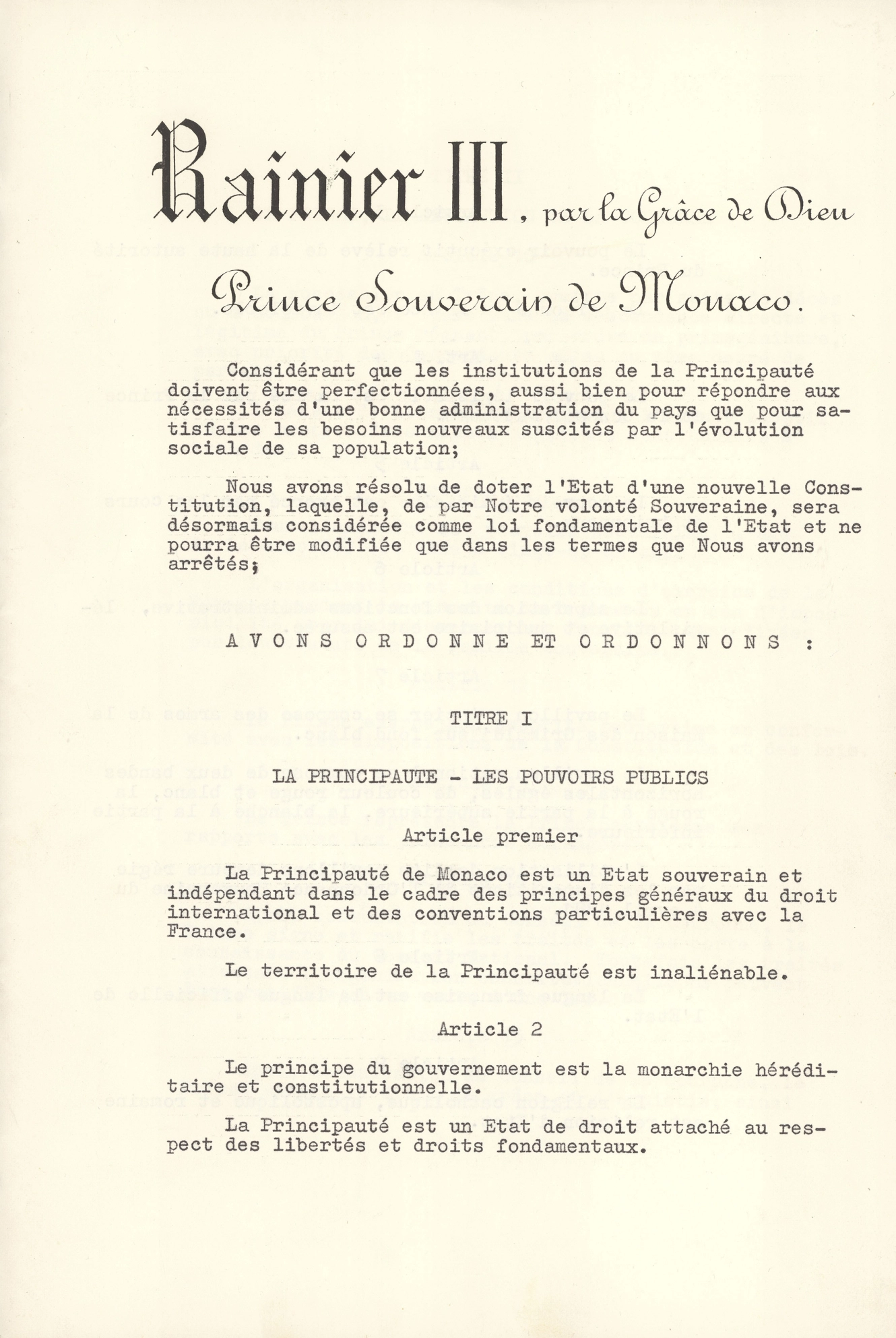Constitution evolves to support the rule of law
In 1911, the Principality of Monaco adopted a constitution. The organisation of the country’s institutions, commissioned and led by Prince Albert I (1848–1922) to meet the aspirations of its population, modernised the Principality’s politics.

Prince Albert I of Monaco, by Franz Bucher (Numa Blanc studio), c. 1895. Archives of the Prince’s Palace (A.P.M.)
In the background is the text of the act setting out the constitutional organisation of the Principality of Monaco, 5 January 1911.
The 1911 act established and defined the boundaries of the public sphere, provided a framework for government and introduced the sharing of legislative authority between the Prince and a National Council, whose members were to be elected from among men of Monegasque nationality. Basic freedoms and rights, a vital element of a state governed by the rule of law, were enshrined in Chapter II: individual freedom, religious freedom and the right of ownership.
The Constitution of 17 December 1962 marked a significant development in this direction, responding – in the words of Prince Rainier III that day, to two needs: "improving institutions" and "meeting the legitimate wishes of the population as reflected through the National Council" by introducing a "new ethos into old frameworks".
The Principality truly became a state governed by the rule of law, in which the Constitution could no longer be suspended. This Constitution, which was more liberal than the 1911 version, committed to protecting all fundamental rights and freedoms – political, economic and social. Women were granted the right to vote in all elections and the death penalty was abolished.
In 2002, the prospect of joining the Council of Europe reached a decisive turning point by means of the constitutional amendment promoted by Prince Rainier III. Membership implied harmonising the Principality’s international status and Monegasque legislation with the Council of Europe’s recommendations: strengthening the remit of the National Council, extending civil rights to women and foreign nationals, and lowering the age of majority to 18 years. This meant that legislative initiative was better asserted, and the right to amend bills proposed by the Government (with the exception of the budget bill) was granted. With regard to foreign relations, the National Council’s remit was expanded to include treaties and agreements.
The rule of law was affirmed.
